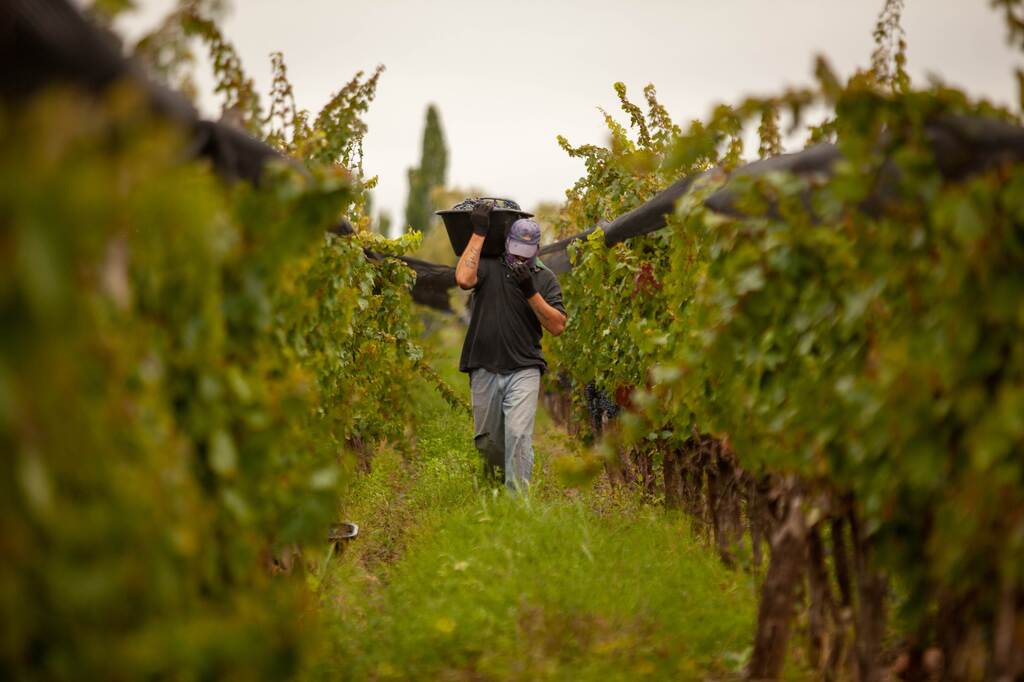At Bodega Argento we have a strong organic winemaking philosophy which keeps us evolving and adapting. As the largest organic wine producer in Mendoza, Argentina, we look forward to leading sustainable development in our region.
Bodega Argento stands as Argentina's foremost organic wine producer, with a presence in over 50 countries and an impressive portfolio of wines. We are dedicated to spearheading sustainable development in our region. Our winemaking philosophy prioritizes the production of wines that authentically express the purity of the fruit and the distinct terroir of each vineyard. Our vineyards are expertly designed for precision viticulture, a process that involves thorough exploration and mapping of soil profiles, as well as the strategic selection of rootstocks and vines. This expertise, coupled with our commitment to agroecological practices and biodiversity, empowers us to produce wine in perfect harmony with the environment. Additionally, we actively promote community development through our Fairtrade program, reinforcing our role as a responsible leader in the industry.
Leading Organic Viticulture and Soil Management: Bodega Argento is one of Argentina's most prominent organic wine producers and has been advancing agroecological practices through our "Matrizviva" R&D program. This initiative utilizes natural processes, such as harnessing the activity of ants to lower soil temperature, to create sustainable tools for organic viticulture. We implement practices that promote healthy soil, improve plant nutrient availability, and enhance carbon capture. Additionally, using cover crops from spontaneous flora helps increase biodiversity and protects against soil erosion. One of our goals for this topic is to conserve 20% of the land at our main vineyard of Agrelo as a natural reserve.
Water Resilience: At Bodega Argento, we understand that viticulture in the Andes relies heavily on snowmelt for irrigation. With snowfall declining below historical averages over the last 15 years, we are proactively addressing the anticipated water deficit, which is projected to worsen in the next decade. We have installed a 100% drip irrigation system across all our vineyards and implemented monthly water plans to optimize usage effectively. Our goal is to reduce 10% of water usage for irrigation. At the winery, we plan a reduction of 20% of water usage in the next 5 years.
Zero-Waste: Our zero-waste initiative confidently recycles or reuses over 97% of generated waste. While the organic waste we produce becomes raw material and is destined for industries that manufacture tartaric acid, among other by-products, all glass, cardboard, and plastic waste generated during wine bottling is 100% sorted and recycled . Additionally, we repurposed 19 tons of waste in circular economy projects with social impacts, in collaboration with women's cooperatives and workshops in local prisons. We aim to recycle and revitalize 99% of our waste by implementing a circular economy solution within the next five years.
Community Development: Every bottle of Bodega Argento Fairtrade-certified wine generates a premium that supports community-driven projects, benefiting over 3,500 people in promoting education, healthcare, and local development throughout the Mendoza wine region in the last 3 years. We look forward to promoting the Fairtrade philosophy and striving to become the most recognized Fairtrade wine brand in Argentina, Europe, and Canada in the next five years, allowing us to multiply the community benefits of the Fairtrade premium.
Strategic alliances for sustainable development: We are confident that the only way to achieve sustainable development is through collaboration and transparency. In accordance with SDG 17, we are moving forward with strategic alliances in order to strengthen the sustainable development agenda in the wine sector. We are founding members of the Sustainable Wine Roundtable and adhere to the UN Global Compact. We are members of the Argentine Institute of Social Responsibility and Sustainability and the sustainability council of Bodegas de Argentinas, and we are part of the enterprise against child labour network. We actively participate in developing global standards for sustainability for the wine sector, promoting global and local best practices. We aim to commit at least 100 hours yearly to participate in the different activities these groups organize.



